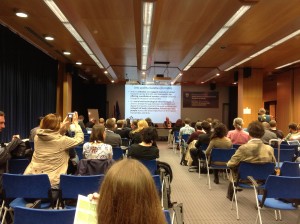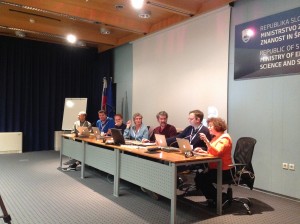DARIAH, the Digital Research Infrastructure for the Arts and Humanities, aims to enhance and support digitally-enabled research and teaching across the humanities and arts.
DARIAH will develop, maintain and operate an infrastructure in support of ICT-based research practices.
By working with communities of practice, DARIAH-EU will bring together individual state-of-the-art digital Arts and Humanities activities across Europe.
It will preserve, provide access to and disseminate research that stems from these collaborations and ensure that best practices, methodological and technical standards are followed.
The DARIAH-EU infrastructure will be a connected network of tools, information, people and methodologies for investigating, exploring and supporting research across the broad spectrum of the Digital Humanities.
- Key benefits of participation in DARIAH could include:
- Increased visibility of national research at the European level.
- Increased international collaboration opportunities; enhancing exchange of knowledge, skills, expertise, training opportunities and good practice.
- Increased potential for the sustainability of the outcomes digital research projects after the end of project funding, helping to ensure the sustainability of tools and services.
- Increased access to research data, tools and services via the DARIAH infrastructure.
- Increased influence at the European and international level and increased opportunities for funding.
DARIAH-EU is a social and technical infrastructure which is composed of people, expertise, information, knowledge, content, methods, tools and technologies for investigating, exploring and supporting work across the broad spectrum of the digital arts and humanities.
To coordinate these activities and help secure long-term funding for digital arts and humanities research in Europe, DARIAH-EU has been established as an ERIC, a European Research Infrastructure Consortium on 15 August 2014.
The Founding Members of the DARIAH-ERIC are Austria, Belgium, Croatia, Cyprus, Denmark, France, Germany, Greece, Ireland, Italy, Luxembourg, Malta, The Netherlands, Serbia and Slovenia.
France is the host country of the DARIAH-ERIC.
DARIAH Members are countries (EU Member States and Associated Countries) or intergovernmental organisations. Alternatively, institutions from countries who are not yet DARIAH Members can participate as Cooperating Partners. Countries, interested in DARIAH, but who are not yet ready to join as Members can participate as Observers.


